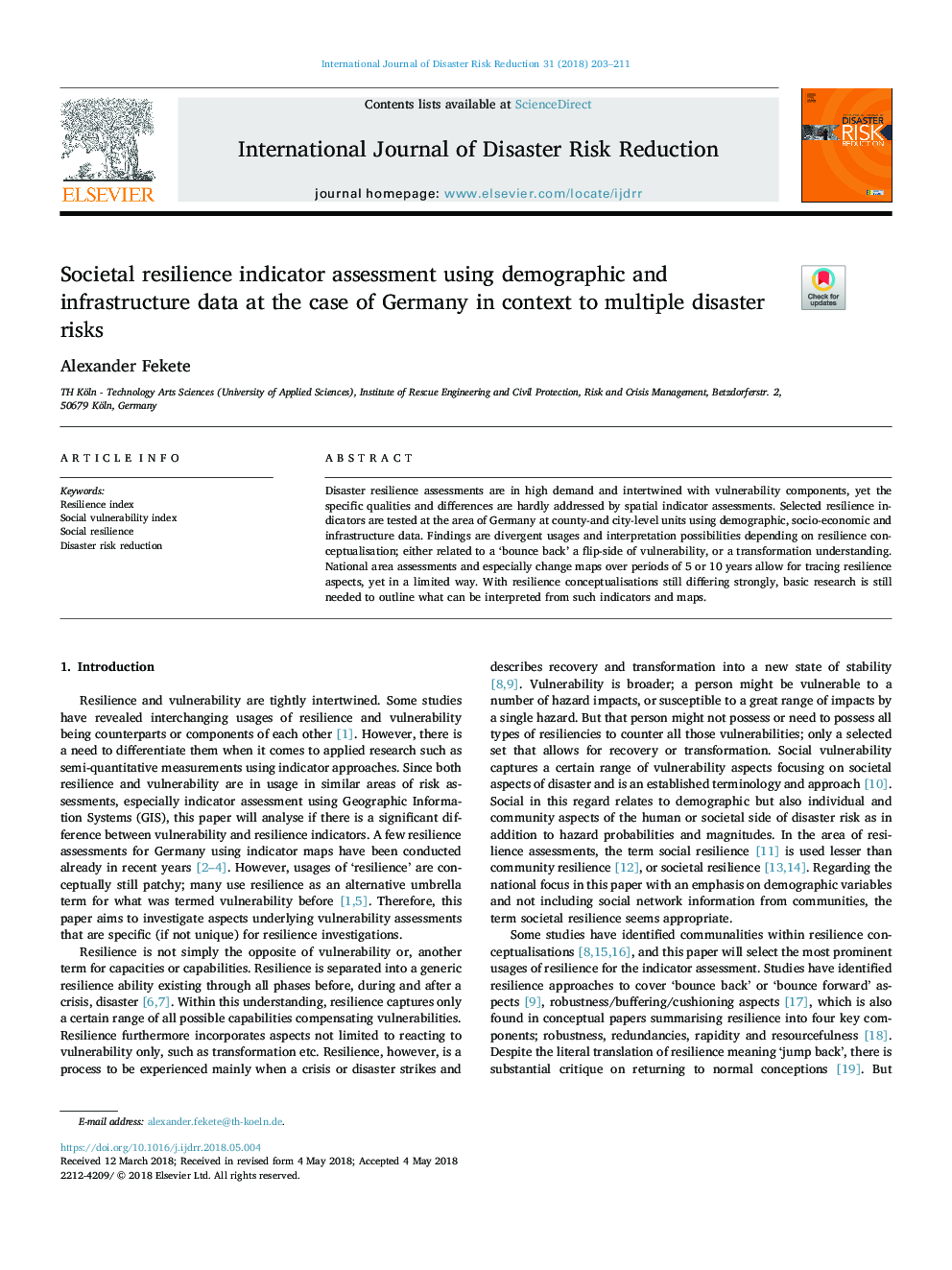| Article ID | Journal | Published Year | Pages | File Type |
|---|---|---|---|---|
| 7471066 | International Journal of Disaster Risk Reduction | 2018 | 9 Pages |
Abstract
Disaster resilience assessments are in high demand and intertwined with vulnerability components, yet the specific qualities and differences are hardly addressed by spatial indicator assessments. Selected resilience indicators are tested at the area of Germany at county-and city-level units using demographic, socio-economic and infrastructure data. Findings are divergent usages and interpretation possibilities depending on resilience conceptualisation; either related to a 'bounce back' a flip-side of vulnerability, or a transformation understanding. National area assessments and especially change maps over periods of 5 or 10 years allow for tracing resilience aspects, yet in a limited way. With resilience conceptualisations still differing strongly, basic research is still needed to outline what can be interpreted from such indicators and maps.
Related Topics
Physical Sciences and Engineering
Earth and Planetary Sciences
Geophysics
Authors
Alexander Fekete,
